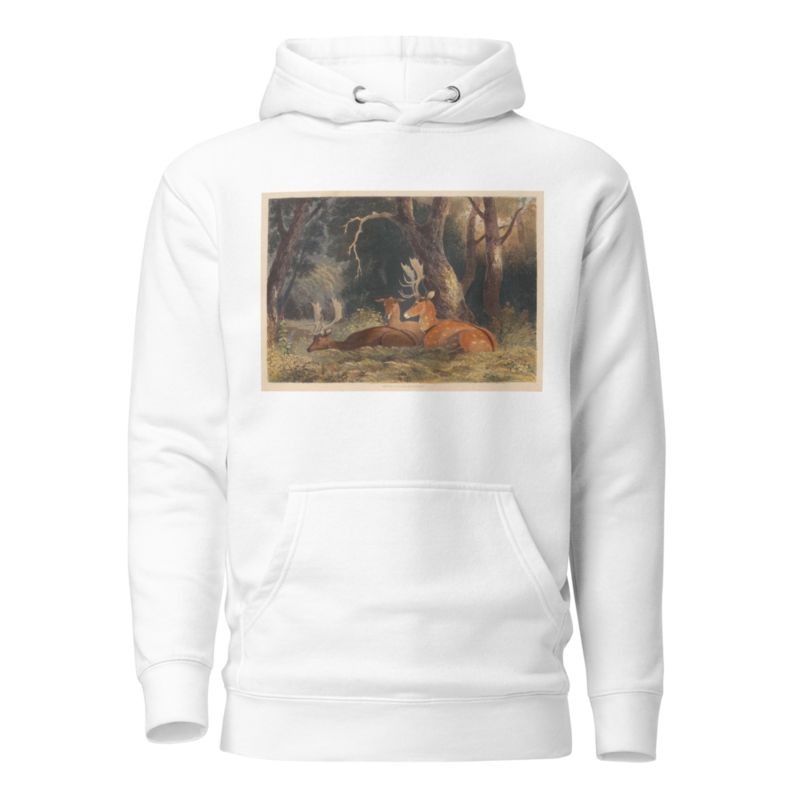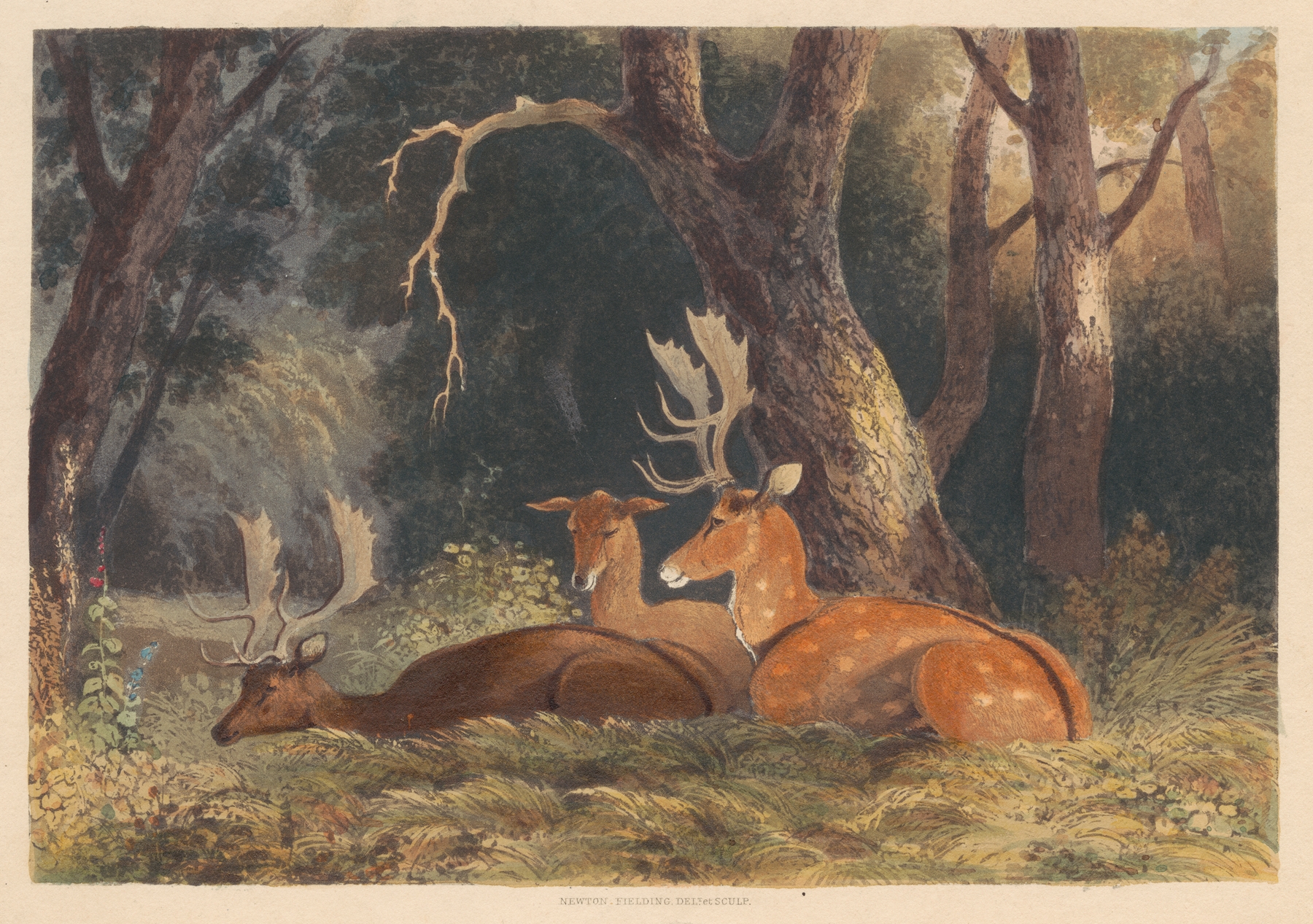Description
Fallow Deer by Newton Limbird Smith Fielding printed on a Hoodie
About the Hoodie
Modern fit
It provides a more tailored look than a regular fit
Comfortable
The fabric and fit of this item are extra comfy
Tear-away tag
Easily removable tear-away tag that allows you to add a custom inside label
Premium quality
The product is made from premium, high-quality materials
Classic unisex hoodie with a front pouch pocket and matching flat drawstrings. The 100% cotton exterior makes this hoodie soft to the touch.
- 65% ring-spun cotton, 35% polyester
- Charcoal Heather is 60% ring-spun cotton, 40% polyester
- Carbon Grey is 55% ring-spun cotton, 45% polyester
- 100% cotton face
- Fabric weight: 8.5 oz./yd.² (288.2 g/m²)
- Front pouch pocket
- Self-fabric patch on the back
- Matching flat drawstrings
- 3-panel hood
- Tear-away tag
Newton Limbird Smith Fielding (1799–1856)
Newton Smith Fielding, was an English painter and lithographer.
Fielding was born in London in 1799, the youngest son of Nathan Theodore Fielding. He exhibited at the Society of Painters in Water-colours, showing some landscapes in 1815, and cattle pieces in 1818. He is best known for his paintings and engravings of animals. Besides painting in water-colours, he also made etchings, aquatints, and lithographs, becoming especially proficient in the last of these. He moved to Paris where he lived until his death, on 12 January 1856; he was much esteemed there, entering the 1827 Paris Salon and teaching the family of Louis-Philippe. In 1836 he published in London a set of Subjects after Nature, and in Paris he published sets of lithographs of animals, and illustrations to various works.
He also published Three Hundred Lessons; or, a Year’s Instruction in Landscape Drawing, including Marine Subjects, with Hints on Perspective, (1852); Lessons on Fortification, with Plates, (1853); A Dictionary of Colour, containing Seven Hundred and Fifty Tints, to which is prefixed a Grammar of Colour, (1854); What to Sketch with; or, Hints on the Use of Coloured Crayons, Water-colours, Oil-colours, Black and White Chalks, Black-lead Pencil, and the Author’s new Method of Preserving the Lights with Composition, (1856); and How to Sketch from Nature; or, Perspective and its Application, (2nd edit. 1856).






Reviews
There are no reviews yet.